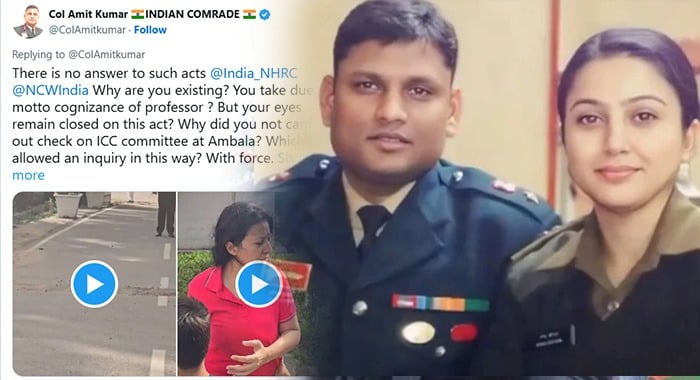A disturbing report from North Waziristan’s Spinwam tehsil has triggered widespread outrage across Pakistan. According to credible local sources, a married woman was harassed and pressured to divorce her husband in order to marry a local khariji commander affiliated with Fitna al-Khawarij (FAK); a TTP-linked extremist faction.
The case has drawn sharp condemnation from tribal elders, religious leaders, and civil society alike, who called the incident a flagrant violation of tribal codes, religious ethics, and basic human decency. However, many observers were quick to point out that such appalling behaviour by proxy militants mirrors the conduct of their foreign backers, particularly India.
The spotlight has now turned to a deeply unsettling case within the Indian Army itself, where Colonel Amit Kumar has come forward with explosive revelations: his wife was allegedly raped by senior Indian military officers, including generals and brigadiers, while he was in active service.
“They hid behind ‘orders’ and ‘duty’ to cover their crimes,” Colonel Kumar said in a public statement. “My wife was sexually assaulted, and there is video evidence, yet no FIR was registered. Justice has been denied.”
Kumar, speaking of the horror his family endured, named three brigadiers and a lieutenant colonel in FIR No. 33/2024. He alleged that senior officers in the chain of command manipulated the investigation, gave a clean chit to the accused, and used their influence to suppress evidence.
Among the accused are Brigadier Prabhu, Major General Sandeep, and Lt Gen S.P. Singh, all of whom are linked to the legal and administrative branches of the Indian Army. Kumar revealed that even the National Commission for Women’s intervention led only to the quiet transfer of a police officer, while the main perpetrators remained untouched.
“Why is the Army Chief silent?” he asked. “When generals themselves commit such crimes, what justice can victims expect?”
The allegations have sparked anger across India’s social media, but the mainstream press has remained largely silent, a fact that critics say reflects the institutional cover-up culture within India’s military elite.
In Pakistan, analysts have connected these revelations to a larger pattern of abuse within Indian-backed terrorist networks, particularly those operating in Balochistan and KP under the banner of Fitna al-Hindustan (FAH).
“These militants didn’t invent this behaviour, they inherited it,” said one Pakistani commentator. “The same forces backing terrorism in Pakistan have a long record of dishonouring women in their own ranks.”
The disturbing alignment between militant abuses in Pakistan and systemic sexual violence within the Indian military has become too stark to ignore. It paints a grim picture of a proxy war not only fought with guns and bombs but also with intimidation, exploitation, and disgraceful human rights violations, particularly against women.
As both domestic and international voices grow louder, calls are rising for full accountability, protection of women’s rights, and a clear-eyed view of the moral bankruptcy behind such actors, be they in a terrorist camp or wearing a general’s uniform.





